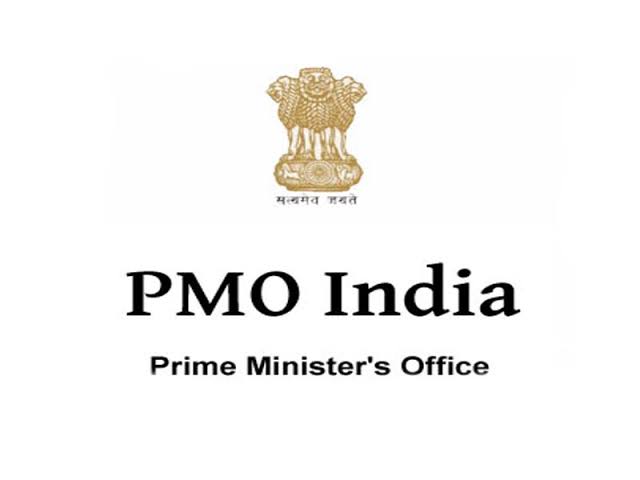In 2019, the World Press Freedom Index ranked India at 140 out of a total of 180 countries in the world. It’s a shame of gigantic proportion. In the last five years, apart from the institutional collapse, the credibility of media, especially the electronic media, has been dented so much that no one is surprised anymore if most of the mainstream news channels are more of a mouthpiece of the Modi Government than the Government’s own spokespersons.

It is often said that the health of a democracy can be gauged from the freedom the media enjoys in that country. In 2019, the World Press Freedom Index ranked India at 140 out of a total of 180 countries in the world. It’s a shame of gigantic proportion. In the last five years, apart from the institutional collapse, the credibility of media, especially the electronic media, has been dented so much that no one is surprised anymore if most of the mainstream news channels are more of a mouthpiece of the Modi Government than the Government’s own spokespersons.
On 8th June, 2019, the Uttar Pradesh police picked up a freelance journalist, Prashant Kanojia, from his house in Delhi for posting a tweet few days back about a news item on a woman claiming that she was in a relationship with Yogi Adityanath, the Chief Minister of Uttar Pradesh. In response, the U.P. Police filed a ‘suo moto’ FIR against him for the alleged offence of defamation under Section 500, Indian Penal Code, 1860 and Section 66 of the Information Technology Act, 2000 for allegedly maligning the image of the UP CM.

The arrest was completely arbitrary, since the defamation offence was non-cognisable in nature, i.e., the accused could not be arrested without a warrant, and the proceedings cannot start unless the Magistrate takes cognisance of the complaint. Further, Prashant Kanojia was arrested in Delhi and taken to Uttar Pradesh without a transit warrant or without being produced before a local magistrate in Delhi. The entire procedure was illegal, and completely unlawful. Even when he was produced before a magistrate in UP, the Magistrate sent him to remand for 11 days, which was very unusual. Later, the police also added another offence to the FIR for allegedly disturbing public transquility.
On 10th June, 2019, Prashant Kanojia’s wife, Jagisha Arora filed a habeas corpus petition in the Supreme Court stating that his detention was completely illegal and arbitrary, albeit under a judicial order of Magistrate. On 11th June, 2019, the Supreme Court emphatically upheld the freedom of speech and expression exercised by Prashant Kanojia, and directed him to be released on bail immediately. The UP Government tried to argue that the arrest was an attempt to ‘send a message to others that strict action would be taken against provocative tweets’, and that the accused had a history of ‘insulting gods and religious icons’. But the Supreme Court asserted that “the fundamental rights guaranteed under the Constitution of India and in particular Articles 19 and 21 of the Constitution of India are non-negotiable”.

Indeed, the Court acknowledged the unique nature of the petition, since it was a habeas petition against a judicial remand order, which is not permissible in the usual cases. The Court, after considering all the contentions, held that “however, Article 32 which is itself a fundamental right cannot be rendered nugatory in a glaring case of deprivation of liberty as in the instant case, where the jurisdictional Magistrate has passed an order of remand till 22.06.2019 which means that the Petitioner’s husband Prashant Kanojia would be in custody for about 13/14 days for putting up posts/tweets on the social media”. Accordingly, the Supreme Court directed that Prashant Kanojia be released on bail immediately, subject to the satisfaction of conditions of the Magistrate. In fact, when the UP Government argued that his release would be construed as an endorsement of tweet, Justice Indira Bannerjee said that it would be an endorsement of his fundamental right to personal liberty.
This order follows the earlier case of Priyanka Sharma, the BJP worker from West Bengal, who was arrested by the West Bengal Government for sharing a photo of the Chief Minister, Mamata Banerjee, which was alleged to be defamatory. The Court had ordered her immediate release then also. All these incidents indicate that the Supreme Court’s jurisprudence on freedom of speech cases is quite strong, but the State violates the same every time it arrests a person for a tweet or a post.
Clearly, the judicial diktat is not being adhered at all by the Executive. It appears that besides Kanojia, the UP police arrested two other media persons, Anuj Shukla and Ishika Singh, the editor and chief of a Noida based channel, Nation Live, which had telecasted the woman’s interview claiming to be in an alleged relationship with the UP Chief Minister. This kind of complete arbitrary and unlawful behaviour is not new at all in the context of the UP Police.
It is high time that the Supreme Court clearly lays down that the police cannot arrest a person for her social media posts, and not deal with individual cases. Strict action should be taken against all the errant police officials who follow the illegal orders of their superiors or who are involved in such unlawful arrests. India’s already one of the lowest on the press freedom index and lets not slide further. (IPA Service)





